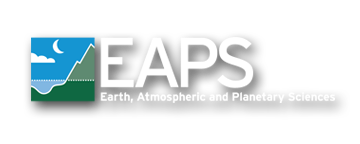PAOC Colloquium – Allison Wing (Florida State Unversity)
Acceleration of tropical cyclone development by cloud-radiative feedbacks
A complete understanding of the development of tropical cyclones (TC) remains elusive and forecasting TC intensification remains challenging. This motivates further research into the physical processes that govern TC development.
Here, I investigate the importance of radiative feedbacks in TC development and the mechanisms underlying their influence is investigated in a set of idealized convection-permitting simulations. Radiative feedbacks in the context of a TC arise from interactions between spatially and temporally varying radiative heating and cooling (driven by the dependence of radiative heating and cooling rate on clouds and water vapor) and the developing TC (the circulation of which shapes the structure of clouds and water vapor). Tropical storm formation is delayed by a factor of two or three when radiative feedbacks are removed and the TC’s intensification rate is greater when longwave radiative feedbacks are stronger. Further analysis pinpoints the longwave radiative feedback contributed by ice clouds as the strongest influence. Improving the representation of cloud-radiative feedbacks in forecast models therefore has the potential to yield critical advancements in TC prediction, but this requires a better understanding of cloud-radiative feedbacks in observed TCs. I present ongoing work that investigates these processes in the CloudSat TC overpass dataset. We examine the vertical and radial structure of ice and liquid clouds and the implications of the heterogeneous cloud distribution for spatial variability in radiative heating rates. Radiative transfer calculations using the CloudSat cloud property retrievals indicate that most of the spatial variability in longwave heating rates comes from ice clouds, as in the idealized simulations. The longwave cloud radiative feedback is found to be strongest in TCs undergoing rapid intensification.
About this series: The PAOC Colloquium is a weekly interdisciplinary seminar series that brings together the whole PAOC community. Seminar topics include all research concerning the physics, chemistry, and biology of the atmospheres, oceans and climate, but also talks about e.g. societal impacts of climatic processes. The seminars take place on Monday from 12-1pm. Contact paoc-colloquium-comm@mit.edu for more information and Zoom password.



